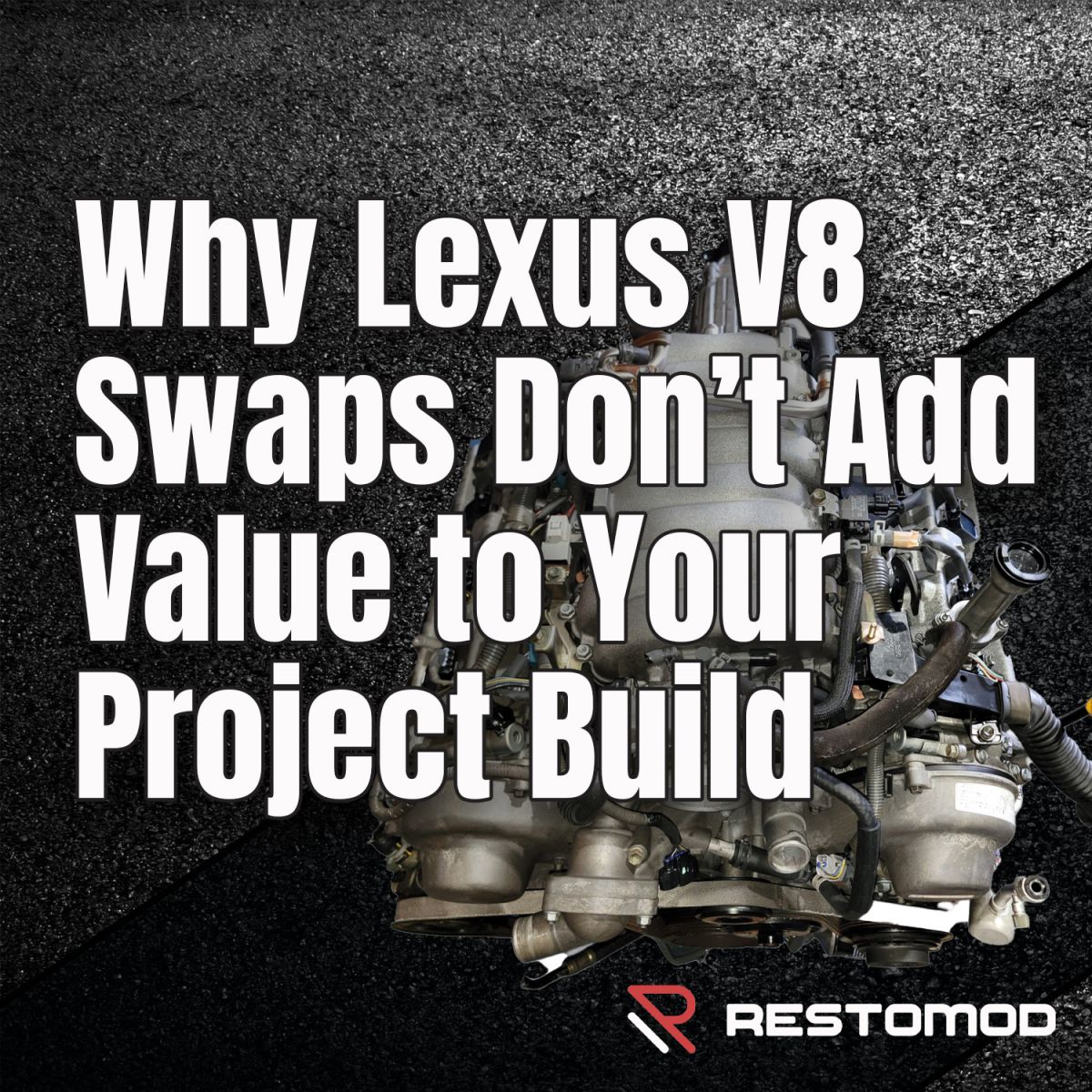
In the world of custom builds and restomods, choosing the right engine isn’t just about getting the car running — it’s about the long-term value, performance, and appeal of the finished project. While the Lexus 1UZ and other V8 engines from Toyota’s luxury arm may seem like a budget-friendly option, they often fall short when it comes to resale value, desirability, and even real-world performance.
Here’s why Lexus V8 swaps might not be the best move for your build:
In the world of custom builds and resto-mods, choosing the right engine isn’t just about getting the car running — it’s about the long-term value, performance, and appeal of the finished project. While the Lexus 1UZ and other V8 engines from Toyota’s luxury arm may seem like a budget-friendly option, they often fall short when it comes to resale value, desirability, and even real-world performance.
Here’s why Lexus V8 swaps might not be the best move for your build:
1. Power and Performance: Underwhelming by Modern Standards
At the time of their release, Lexus V8s like the 1UZ were smooth, reliable engines producing decent horsepower for luxury sedans. But by today’s standards — especially in the performance and custom car world — they’re underpowered. In naturally aspirated form, most 1UZ variants deliver between 190–260 hp, while modern crate engines or performance builds like the Ford Coyote 5.0 and GM’s LS family easily exceed 400 hp out the box.
In short, if you’re chasing numbers and real muscle, the Lexus motor isn’t going to get you there without extensive (and expensive) modification.
2. The Market Perception Problem
The market remembers the days when Lexus V8s could be bought for R10,000. Even though prices have crept up due to demand and dwindling supply, the perception of them as a “cheap engine swap” remains. And perception directly affects resale value.
Buyers looking at a completed project car tend to gravitate toward builds with Coyote or LS powerplants. These engines have strong reputations in the hot rod and performance communities, and parts, tuning support, and performance upgrades are widely available. When a buyer sees an LS or a Coyote under the hood, they immediately associate the car with power, potential, and quality. When they see a Lexus engine, many assume corners were cut.
3. Value Is in the Parts
A custom build’s value is defined by the quality — and desirability — of its parts. A Lexus V8 may run well and be affordable to source, but it doesn't carry the same weight in the enthusiast community. A Coyote or LS swap adds value simply by being a known quantity with proven performance.
If you’re planning to sell the vehicle down the line or want it to be respected on the show scene or social media, your engine choice matters.
4. Installation Costs Aren’t Necessarily Cheaper
One of the biggest myths about Lexus swaps is that they’re significantly cheaper to install. In reality, that’s not always the case. Mounting kits, wiring harnesses, ECU tuning, and exhaust routing all take time and money — and because the 1UZ isn’t as common in performance builds, support can be more limited.
Compare that to the LS or Coyote: both platforms have massive aftermarket support, drop-in swap kits, ready-made ECUs, and thousands of tutorials and builds to follow. The installation is often quicker, cleaner, and more cost-effective in the long run.
Final Thoughts
While Lexus V8 swaps might appeal to the budget-conscious builder, they often come at the cost of long-term value, performance credibility, and resale potential. If your goal is to create a resto-mod or project car that turns heads — and turns a profit — you’re better off investing in a powerplant that adds both performance and prestige.
Engines like the Coyote 5.0, LS1, LS2, and LS3 aren’t just more powerful — they’re more marketable. And in the world of custom cars, that makes all the difference
